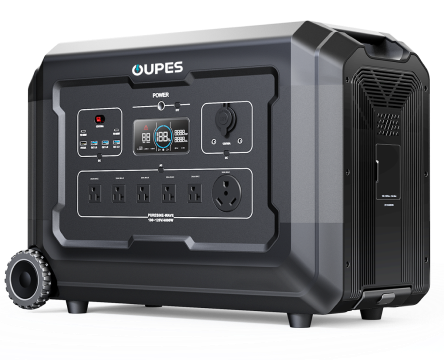![How Much Does an RV Generator Cost? [Price Breakdown & Buying Tips]](https://oupes.com/a/blog/media/oupes.myshopify.com/Post/featured_img/Exodus1500PortablePowerStation.jpg)
Introduction
An RV generator ensures power for appliances and comfort off-grid, but prices vary dramatically based on type, size, and features. Whether you need basic backup or full-time energy independence, this guide helps you navigate costs and avoid overspending.
Types of RV Generators
By Fuel Type
- Gasoline: Most common, affordable fuel access.
- Propane: Cleaner burn, longer shelf life.
- Diesel: High efficiency for large RVs.
- Solar-powered stations: Silent but weather-dependent.
Price Ranges by Generator Type
Entry-Level ($400–$800)
- Gasoline: 2,000–3,500W, open-frame (65–75 dB).
- Portable solar: 300–500W, limited to lights/phones.
Mid-Range ($800–$1,500)
- Inverter gasoline/propane: 2,000–4,000W, 55–65 dB.
- Hybrid solar+gas: 1,000W solar + 2,000W gas backup.
High-End ($1,500–$3,000+)
- Diesel inverters: 5,000–7,500W, ultra-quiet (52–60 dB).
- Solar power stations: 2,000–3,000W with LiFePO4 batteries.
Factors Affecting Cost
- Power output: Add $300–$500 per 1,000W increase.
- Inverter technology: Adds 20–40% cost vs. conventional generators.
- Noise reduction: Quieter models (<60 dB) cost 30–50% more.
- Fuel type: Diesel units cost 25% more than comparable gas models.
Buying Tips
1. Calculate Your Power Needs
- Add wattage of essentials: AC (1,500W), fridge (600W), microwave (1,000W).
- Include 20% buffer for surge demands.
2. Prioritize Key Features
- Inverter generators: Safe for sensitive electronics (CPAP, laptops).
- Dual-fuel: Flexibility to switch between propane and gas.
3. Evaluate Long-Term Costs
- Solar: High upfront cost ($1/W) but $0 fuel expense.
- Gas/Diesel: Factor fuel consumption (e.g., 0.5 gal/hr at 50% load).
Conclusion
RV generators range from $400 budget gas models to $3,000+ solar-diesel hybrids. Match your purchase to actual usage: occasional campers can opt for 2,000W gas inverters, while full-timers should invest in 5,000W+ diesel or solar setups. Always balance upfront costs with fuel efficiency, noise, and maintenance to maximize value.




























